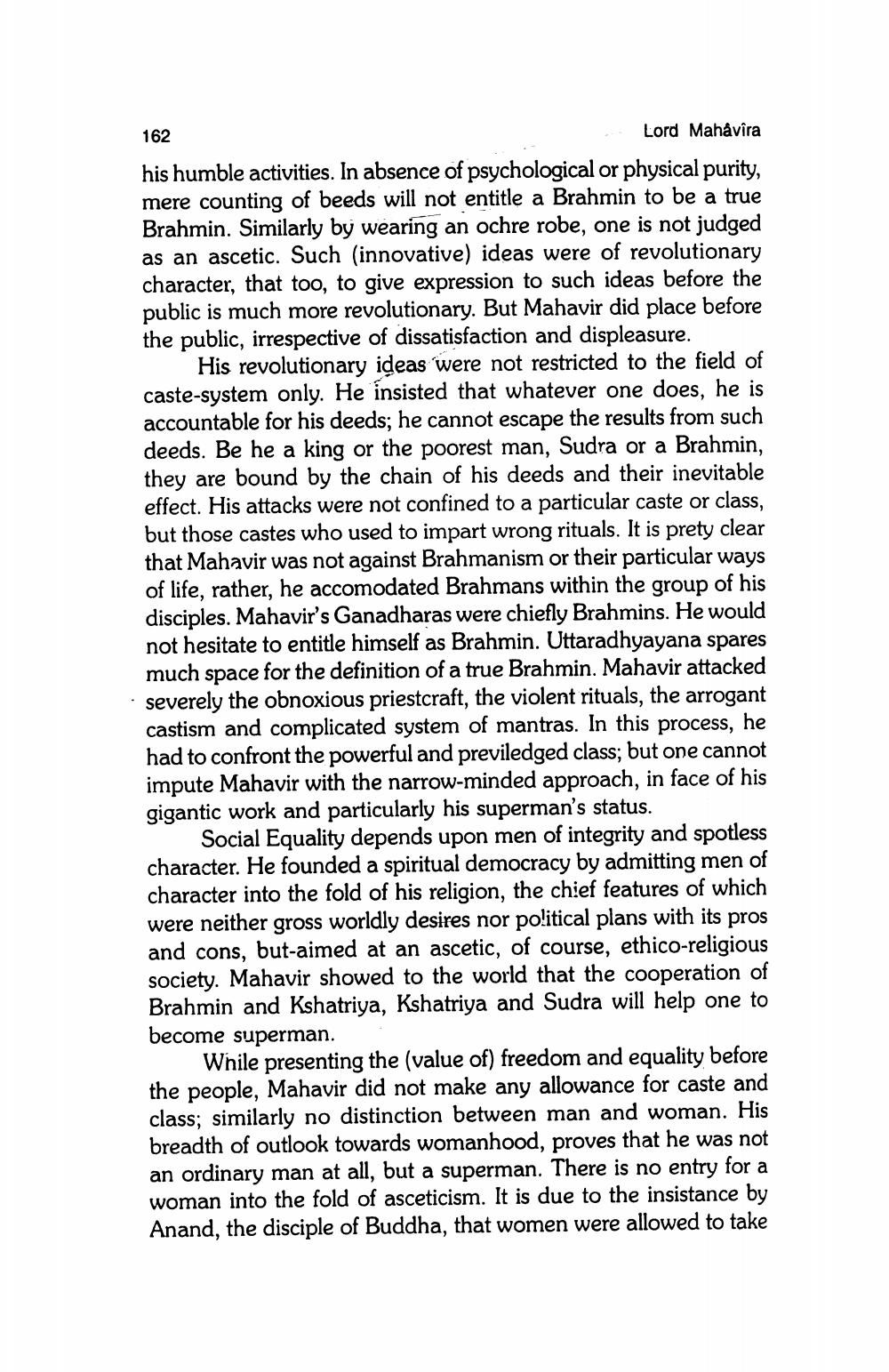________________
162
Lord Mahâvîra
his humble activities. In absence of psychological or physical purity, mere counting of beeds will not entitle a Brahmin to be a true Brahmin. Similarly by wearing an ochre robe, one is not judged as an ascetic. Such (innovative) ideas were of revolutionary character, that too, to give expression to such ideas before the public is much more revolutionary. But Mahavir did place before the public, irrespective of dissatisfaction and displeasure.
His revolutionary ideas were not restricted to the field of caste-system only. He insisted that whatever one does, he is accountable for his deeds; he cannot escape the results from such deeds. Be he a king or the poorest man, Sudra or a Brahmin, they are bound by the chain of his deeds and their inevitable effect. His attacks were not confined to a particular caste or class, but those castes who used to impart wrong rituals. It is prety clear that Mahavir was not against Brahmanism or their particular ways of life, rather, he accomodated Brahmans within the group of his disciples. Mahavir's Ganadharas were chiefly Brahmins. He would not hesitate to entitle himself as Brahmin. Uttaradhyayana spares much space for the definition of a true Brahmin. Mahavir attacked severely the obnoxious priestcraft, the violent rituals, the arrogant castism and complicated system of mantras. In this process, he had to confront the powerful and previledged class; but one cannot impute Mahavir with the narrow-minded approach, in face of his gigantic work and particularly his superman's status.
Social Equality depends upon men of integrity and spotless character. He founded a spiritual democracy by admitting men of character into the fold of his religion, the chief features of which were neither gross worldly desires nor political plans with its pros and cons, but-aimed at an ascetic, of course, ethico-religious society. Mahavir showed to the world that the cooperation of Brahmin and Kshatriya, Kshatriya and Sudra will help one to become superman.
While presenting the (value of) freedom and equality before the people, Mahavir did not make any allowance for caste and class; similarly no distinction between man and woman. His breadth of outlook towards womanhood, proves that he was not an ordinary man at all, but a superman. There is no entry for a woman into the fold of asceticism. It is due to the insistance by Anand, the disciple of Buddha, that women were allowed to take




